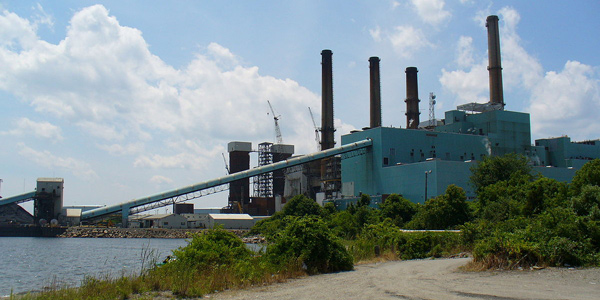By Rich Heidorn Jr.
FERC on Thursday rejected a request by the New England States Committee on Electricity to broaden the commission’s February ruling raising ISO-NE’s peak energy rent (PER) adjustment. The commission also approved the RTO’s compliance filing in the matter (EL16-120, ER17-2153, ER18-1153).
The commission had approved an uncontested settlement that resolved issues it set for hearing in 2017 after finding that the PER mechanism had become unjust and unreasonable because of the interaction between the mechanism and higher reserve constraint penalty factors (RCPF). The settlement covered the period of Sept. 30, 2016 — the date of the initiating complaint by the New England Power Generators Association — through May 31, 2018, the last day of the capacity commitment period for Forward Capacity Auction 8. (See FERC OKs Settlement on ISO-NE Scarcity Rules.)
The Feb. 20 order noted the settling parties did not agree on the application of the revised strike price methodology to FCA 9, the capacity commitment period beginning June 1, 2018.
NESCOE supported the adjusted PER strike price but protested continued use of the methodology after May 31. It asked FERC to require ISO-NE to reinstate, effective June 1, 2018, the method it used to calculate the PER strike price before the settlement period.
NESCOE said the settlement order did not address the circumstances when a PER event occurs prior to May 31, 2018. But because of the 12-month rolling average used in the PER calculation, such an event would affect ISO-NE’s calculation of the PER credit against the monthly payment that load must make to capacity resources after that date, NESCOE said.
The organization said the new methodology should not apply for FCA 9 because the auction was held in February 2015 — after the RCPFs were increased, which allowed resources to reflect the change in their supply offers.
NEPGA countered that NESCOE’s position “would deny capacity suppliers the full extent of the relief granted by the commission.”
The commission said NESCOE’s request would require Tariff changes under Federal Power Act Section 205 or 206 and was beyond the scope of the proceeding.
“NESCOE’s request would, in effect, mean that the PER payments to load (i.e., the credit against the monthly payment that load must make to capacity resources that is associated with PER events) starting on June 1, 2018, would be calculated as if each monthly PER amount for the 12-month averaging process were calculated using the original PER strike price for the Sept. 30, 2016, to May 31, 2018 period.”
FERC previously agreed to eliminate the PER adjustment effective with the capacity commitment period beginning June 1, 2019 (ER17-2153, EL16-120). ISO-NE said its Pay-for-Performance program and changes to the day-ahead energy market made the adjustment unnecessary beyond that date.
FCA 8 Challenge Rejected
In another ISO-NE ruling, FERC rejected as untimely a 2015 protest by the Utility Workers Union of America Local 464 (UWUA) over the results of FCA 8, which the union claimed was tainted by Energy Capital Partners’ decision to close its Brayton Point generating plant.
In September 2014, the commission split 2-2 over whether it should reject the results from FCA 8 because of unchecked market power, allowing the 2017/18 auction results to become “effective by operation of law” (ER14-1409).
UWUA’s protest said the commission should have revisited the issue after it added a fifth commissioner able to break the 2-2 deadlock.
But the commission said protests were required to be filed by April 14, 2014, and that when the union filed its protest, FCA 8 was no longer pending.
FERC noted that it had rejected UWUA’s similar challenges to the results of FCA 9 and 10 after a nonpublic investigation that “found credible justifications for the owners’ retirement decision.” It also noted that its rulings were upheld on appeal in July. (See D.C. Circuit Dismisses Union Challenges to FCA Results.)





